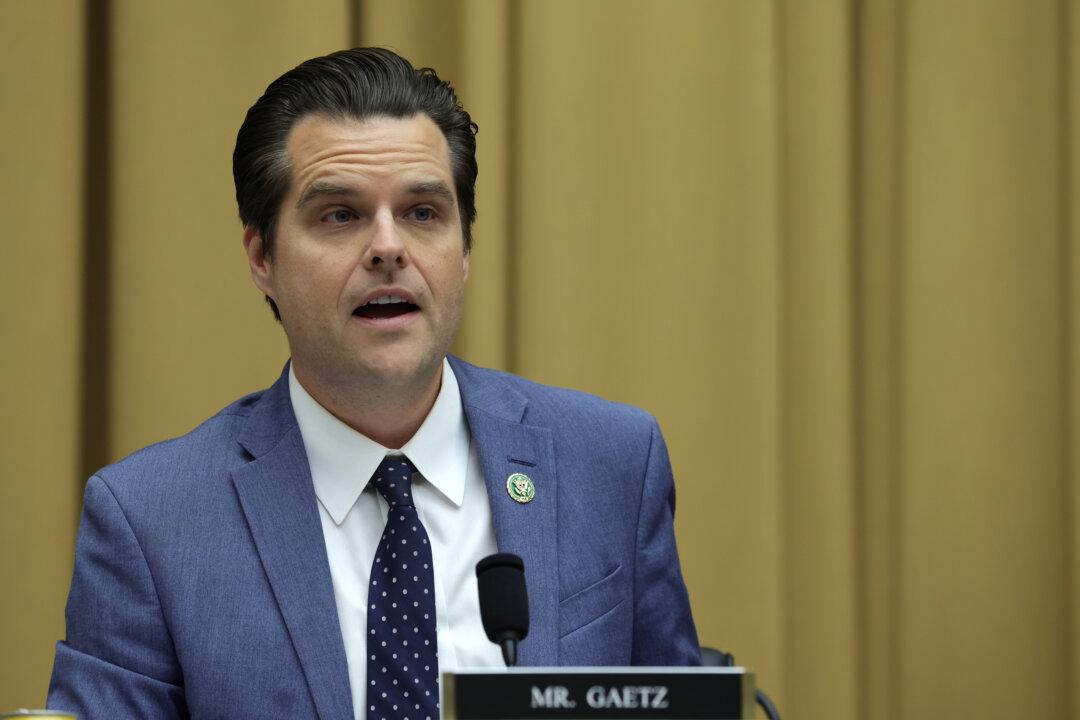Representative Matt Gaetz (R-Fla.) is shooting down suggestions of a rift within the body of House Republicans that could lead to House Speaker Kevin McCarthy (R-Calif.) losing control of the gavel over his debt ceiling negotiations.
In an interview with the Washington Examiner on Monday, Gaetz said he has “no plans” to unseat McCarthy. While Gaetz had initially opposed McCarthy’s speakership bid and his proposal to increase the debt limit, Gaetz said that he doesn’t see a reason to find a new House speaker unless there’s some “dramatic, unexpected turn” in McCarthy’s debt limit negotiations with President Joe Biden.





